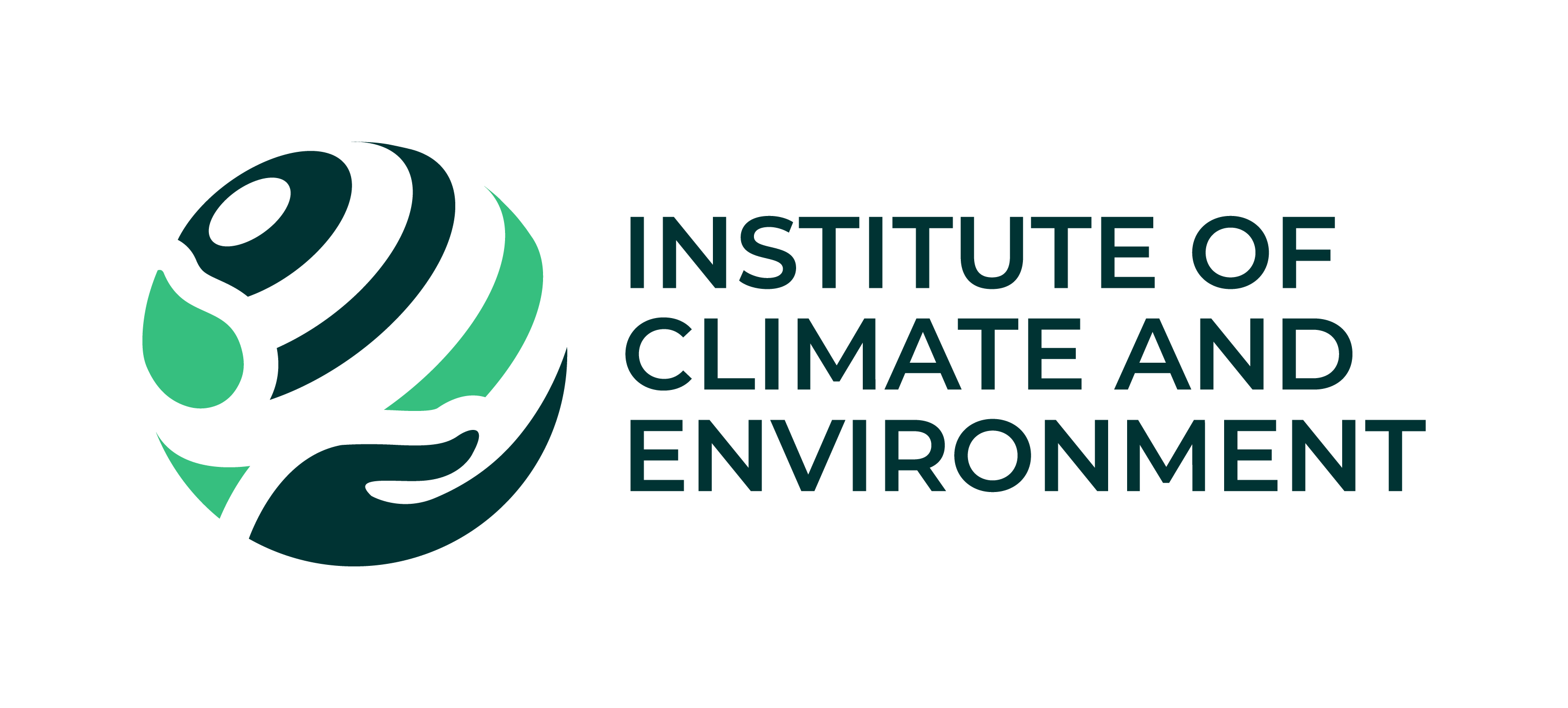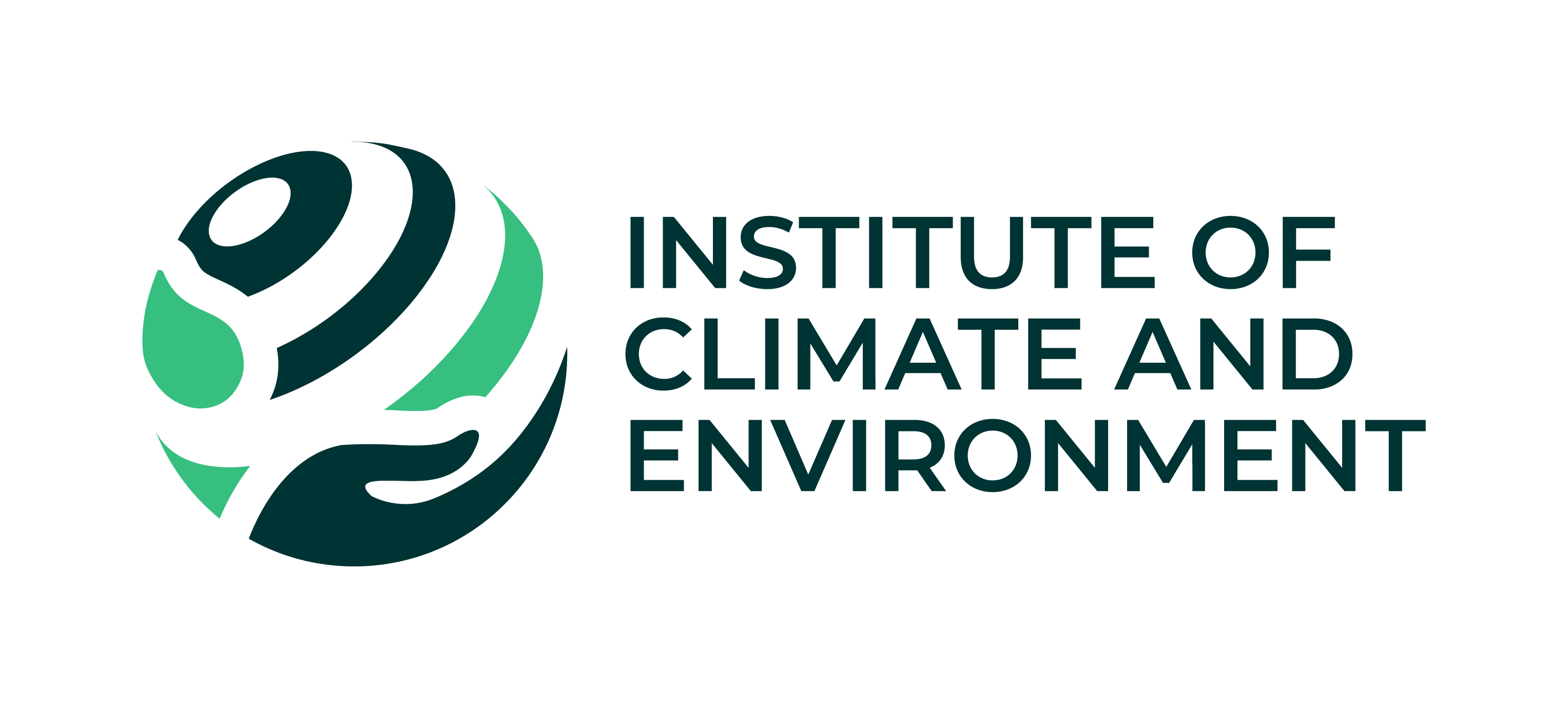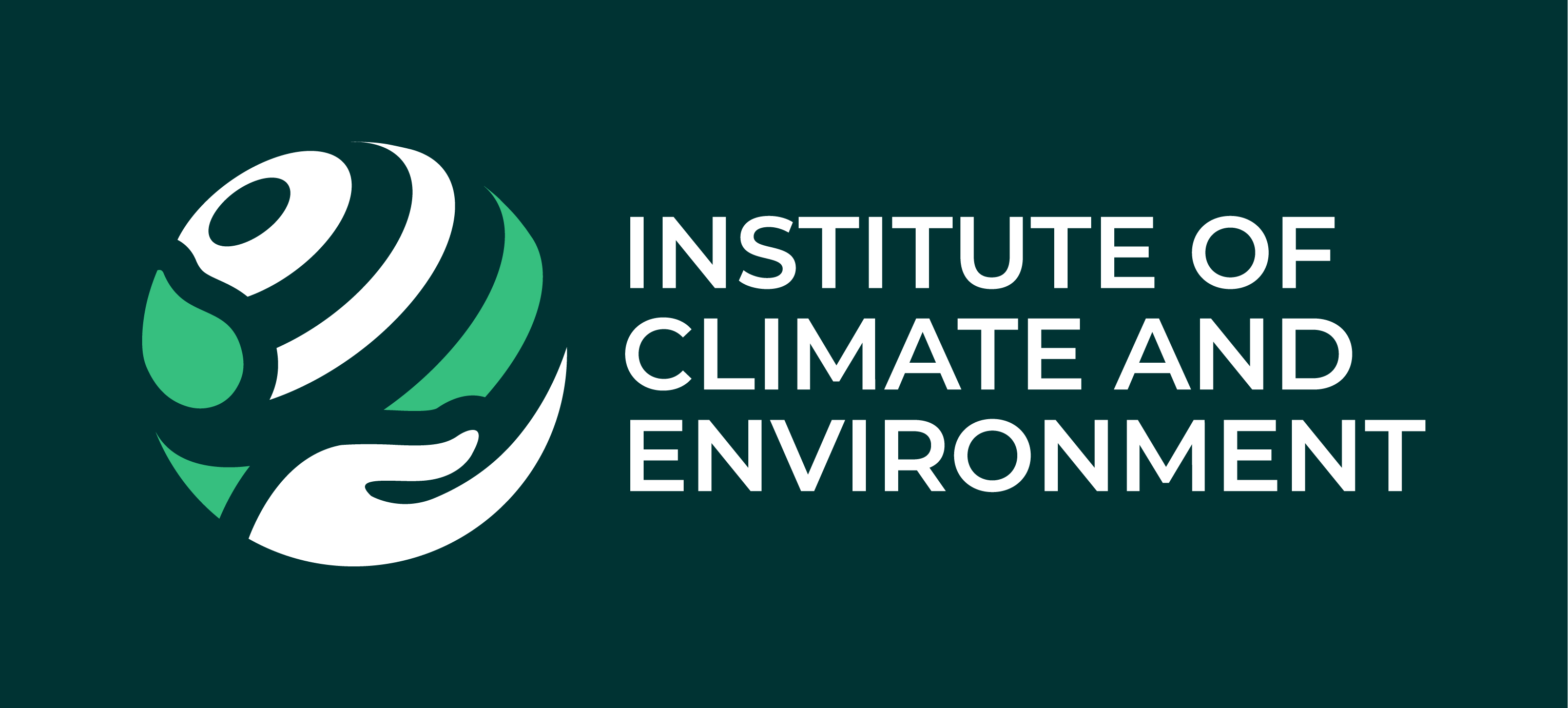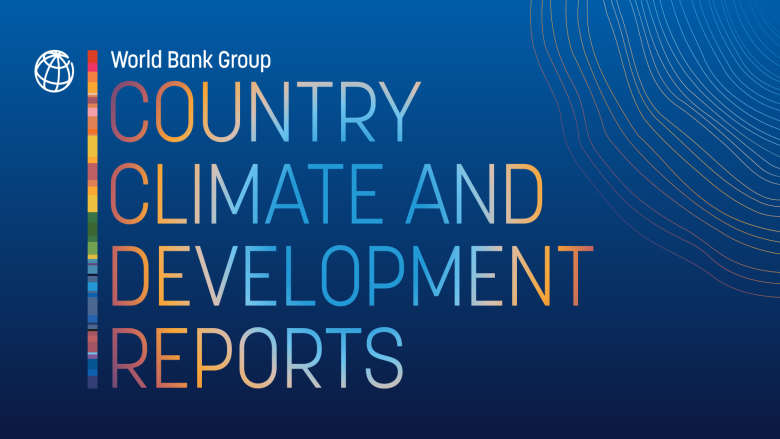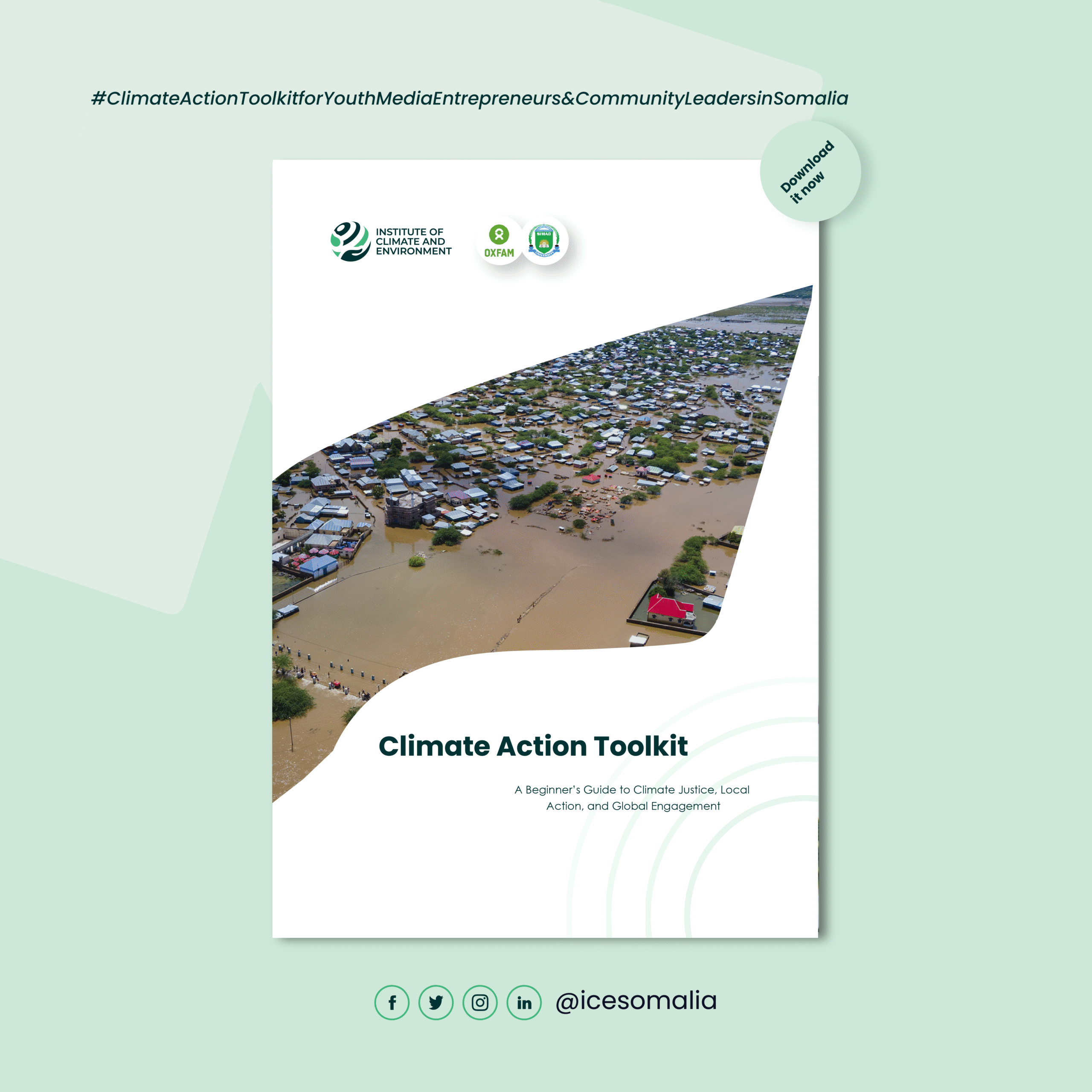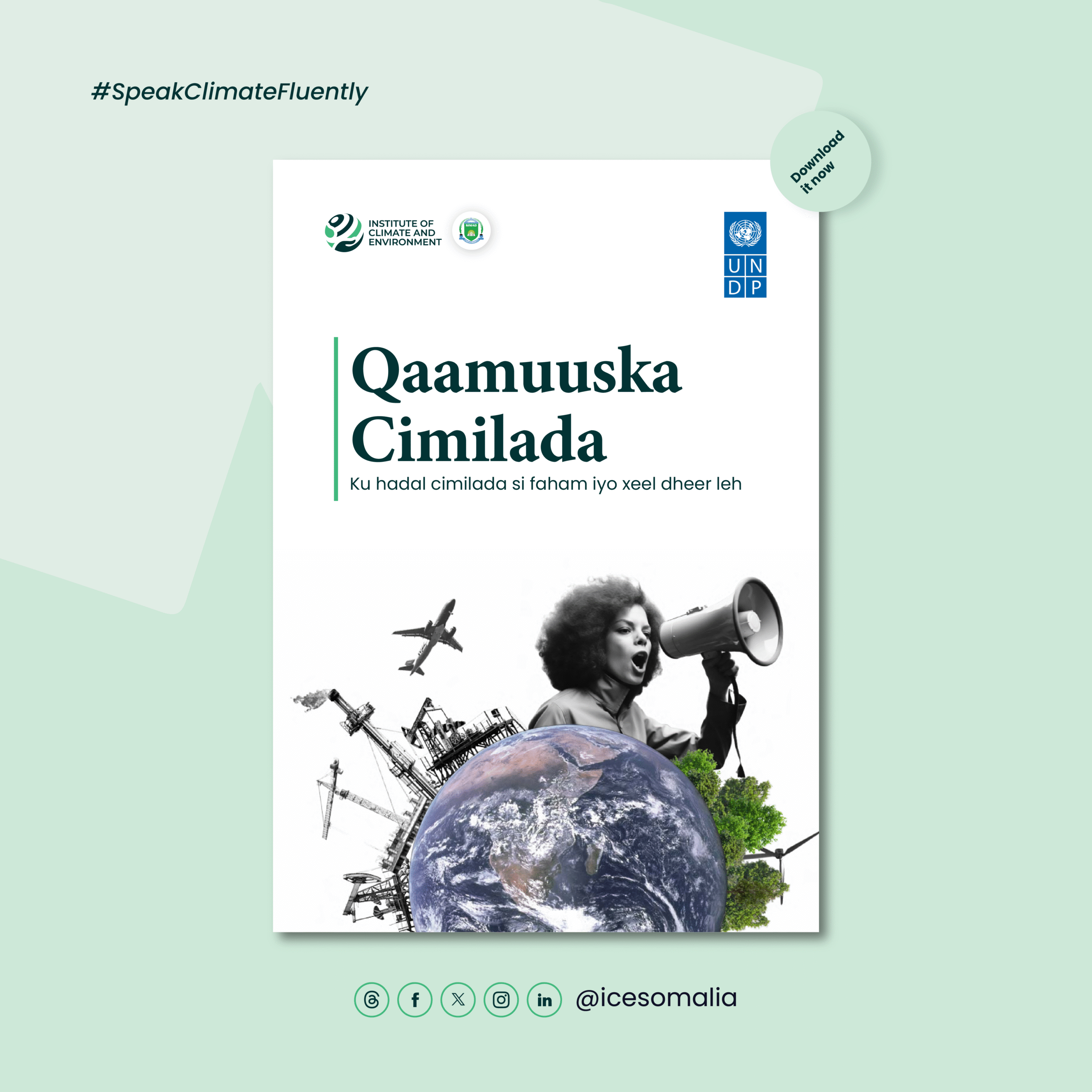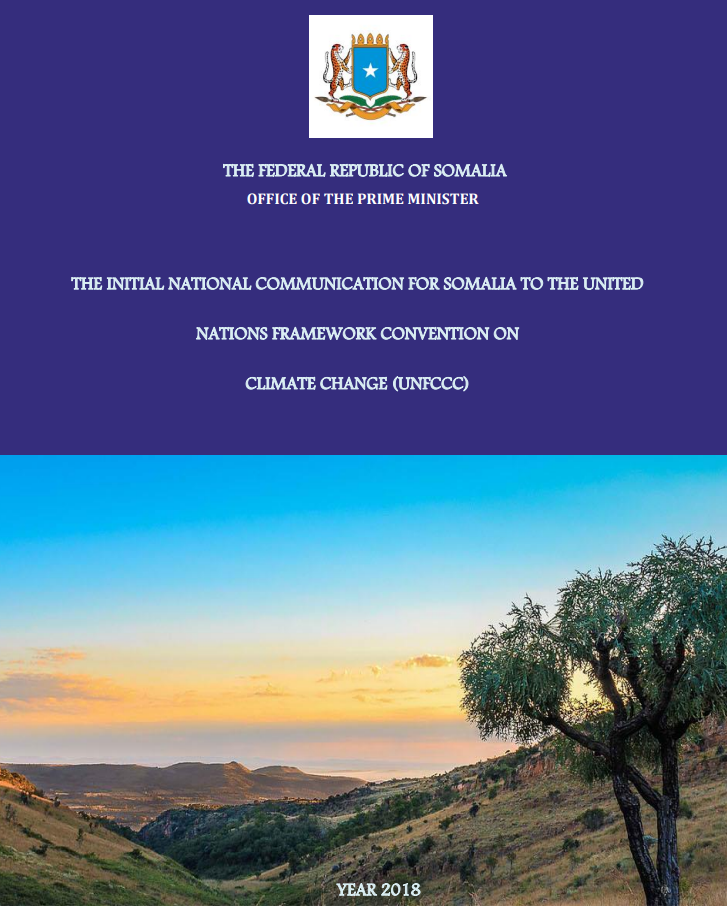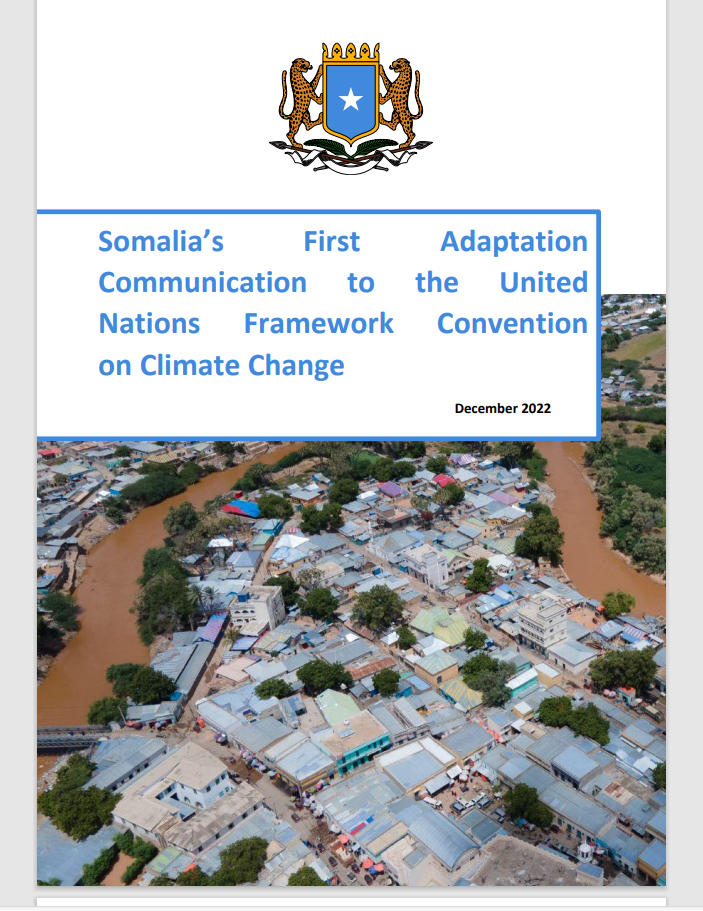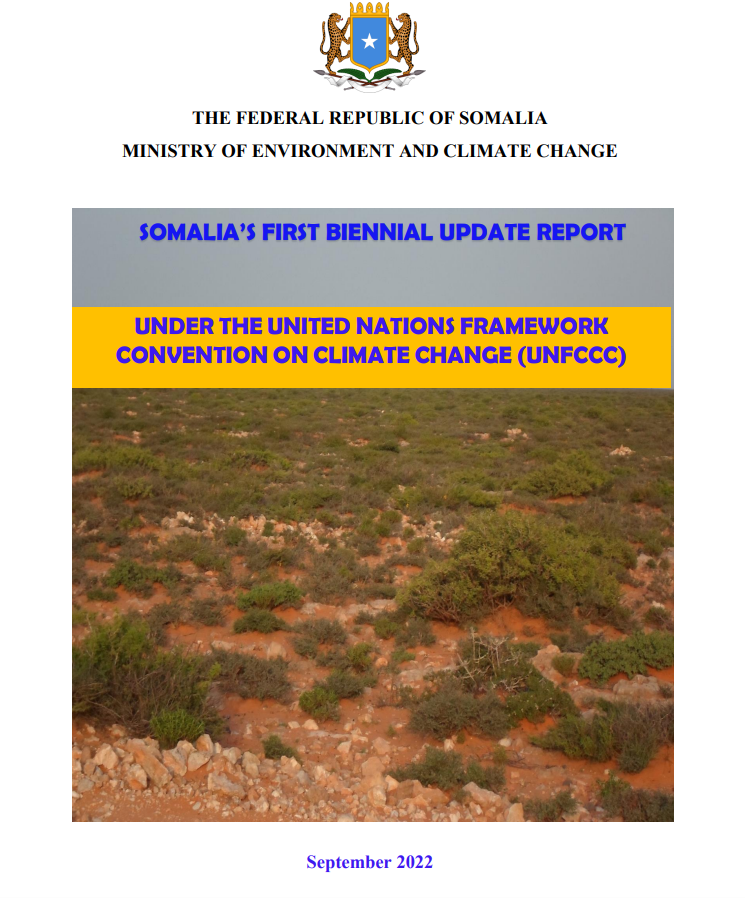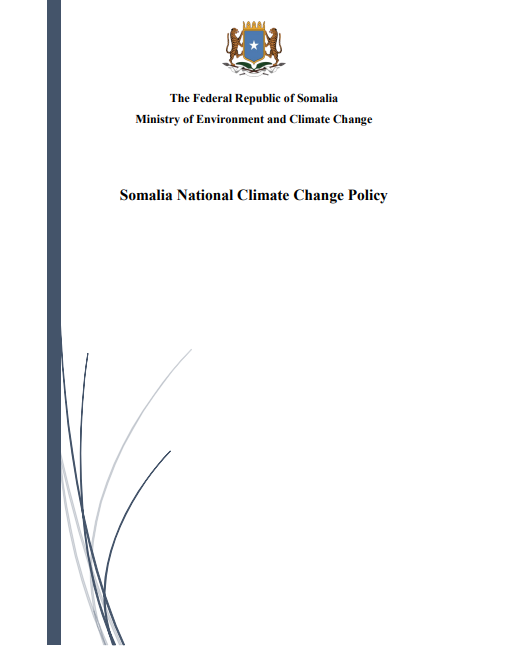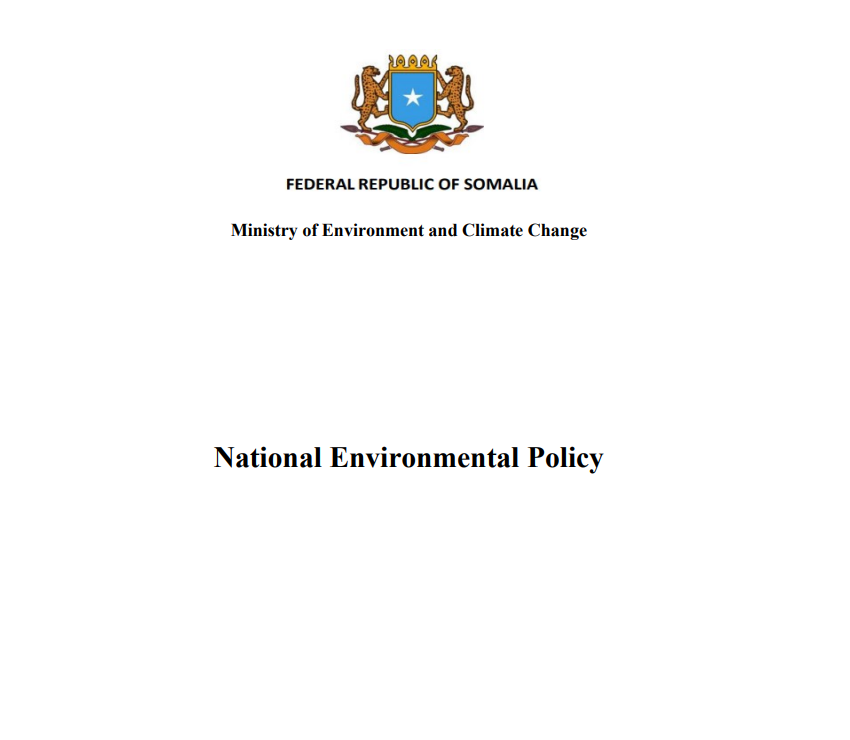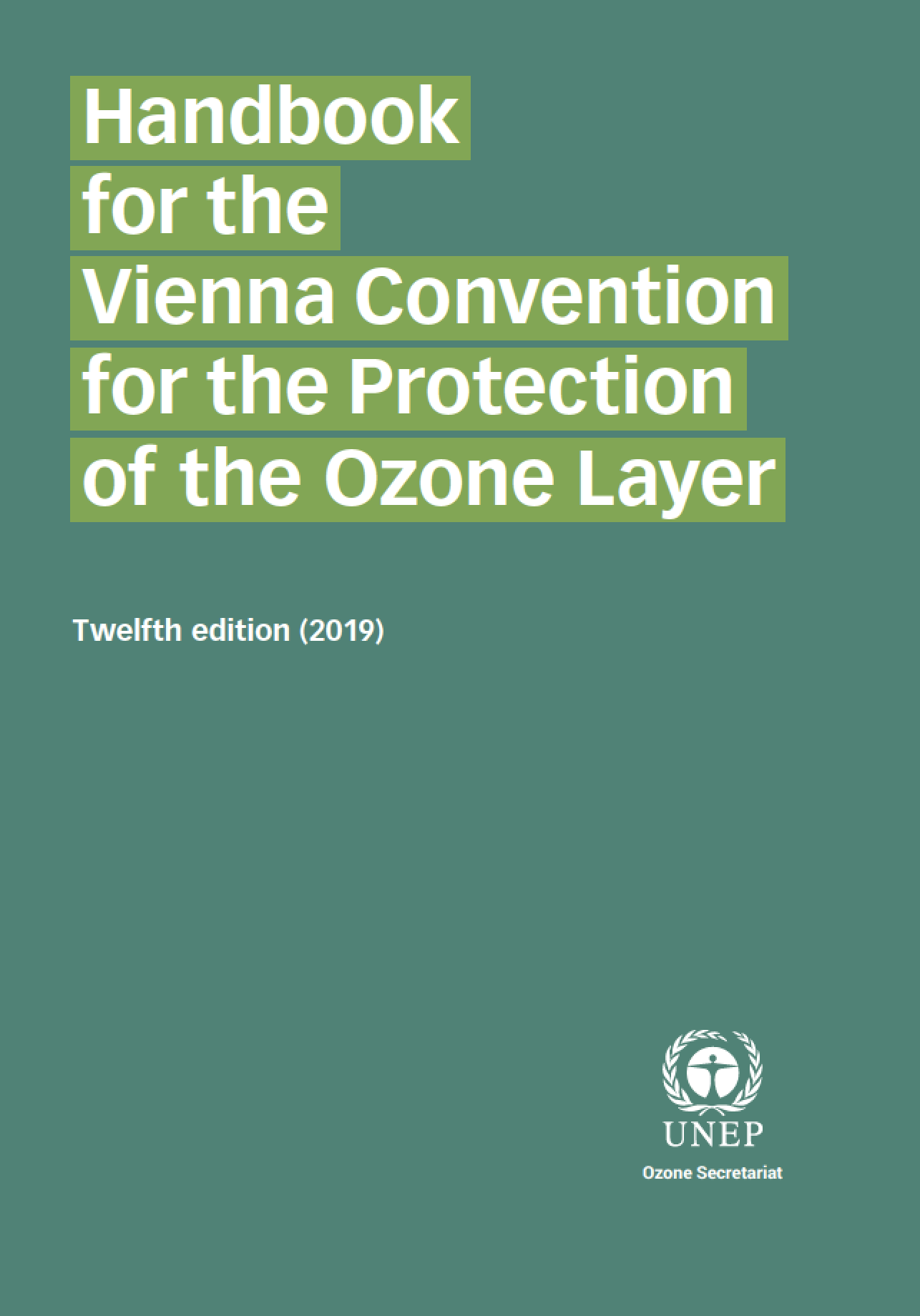Somalia Country Climate and Development Report
Somalia stands at a critical juncture where climate vulnerability and protracted fragility intersect to shape its development trajectory. Despite meaningful progress in macroeconomic stabilisation, completion of the HIPC process, and accession to the East African Community, the country remains highly exposed to intensifying climate shocks. Recurrent droughts, floods,
ICE Institute Launches Climate Action Toolkit for Somali Changemakers
In partnership with Oxfam, the Institute of Climate and Environment (ICE) at SIMAD University is proud to launch the Climate Action Toolkit for Youth, Media, Entrepreneurs & Community Leaders in Somalia. This beginner-friendly guide is a groundbreaking resource designed to raise awareness, build capacity, and activate climate action across Somali communitiesÔ
Climate Dictionary: Speak climate fluently
In a historic step towards advancing climate awareness and education in Somalia, the Institute of Climate and Environment (ICE) at SIMAD University has unveiled the ICE Climate Dictionary 2025 ÔÇö the nationÔÇÖs first climate terminology guide in the Somali language. This pioneering resource translates and explains 40 of the most frequently used climate-related terms
THE INITIAL NATIONAL COMMUNICATION FOR SOMALIA TO THE UNITED NATIONS FRAMEWORK CONVENTION ON CLIMATE CHANGE (UNFCCC)
The information contained in this Initial National Communication to the UNFCCC includes; national circumstances influencing climate change actions, the steps taken to implement the convention, the national inventory of anthropogenic emissions by sources and removal by sinks of all greenhouse gases (GHGs) not controlled by the Montreal Protocol, actions taken, informat
SomaliaÔÇÖs First Adaptation Communication to the United Nations Framework Convention on Climate Change
SomaliaÔÇÖs Adaptation Communication (AdCom) is a report designed to reflect the countryÔÇÖs adaptation progress, priorities, and needs going forward. The purpose of the AdCom is to: i) strengthen adaptation action and enhance resilience to the impacts of climate change; ii) increase the visibility and profile of adaptation globally and nationally; iii) improve learni
SOMALIAÔÇÖS FIRST BIENNIAL UPDATE REPORT
SomaliaÔÇÖs First Biennial Update Report (BUR) to the United Nations Framework Convention on Climate Change to the United Nations Framework Convention on Climate Change (UNFCC). In accordance with the United Nations Framework Convention on Climate Change (UNFCCC), the Federal Republic of Somalia is hereby submitting its First Biennial Update Report (BUR). The report f
Somalia National Climate Change Policy
The Federal Republic of Somalia recognizes the urgent need to address the pressing challenges posed by climate change. As a nation in the Horn of Africa, Somalia is acutely vulnerable to the impacts of a changing climate, including extreme weather events, rising sea levels, and disruptions to its ecosystems. To confront these challenges and pave […]
National Environmental Policy
After decades of conflict, Somalia has taken steps towards long-term peace. The country has crafted a National Development Plan as a basis for future plans and policy developments. Against this background, the National Environment Policy is a response to our national commitment to a clean environment, mandated in the Provisional Constitution under Articles 25, 45, [&h
Montreal Protocol on Substances that Deplete the Ozone Layer
The Montreal Protocol is an international treaty designed to protect the Earth’s ozone layer by phasing out the production and consumption of substances known to cause ozone depletion. These substances include chlorofluorocarbons (CFCs), hydrochlorofluorocarbons (HCFCs), halons, and other ozone-depleting chemicals. The protocol was adopted in 1987 and has been a
Vienna Convention for the Protection of the Ozone Layer
The Vienna Convention for the Protection of the Ozone Layer adopted in 1985 aimed toprotect human health and the environment against the adverse effects resulting frommodifications of the ozone layer. It was followed shortly afterwards by the adoption of itsMontreal Protocol on Substances that Deplete the Ozone Layer in 1987.The ozone layer serves as a […]
